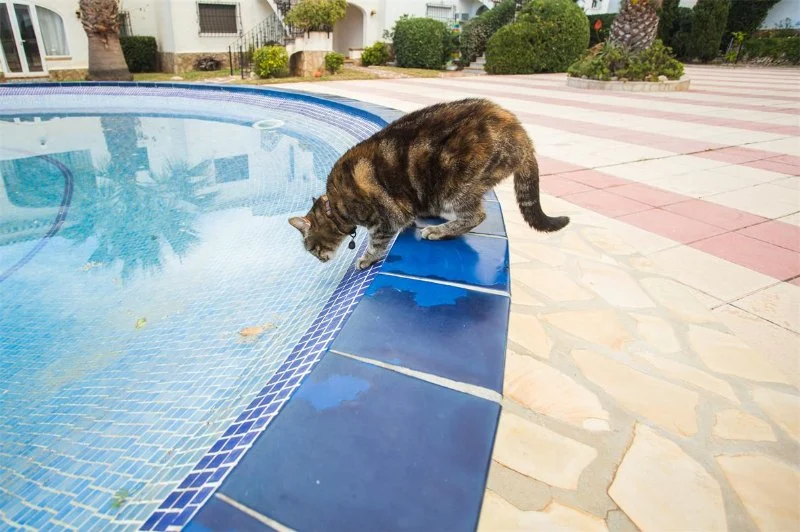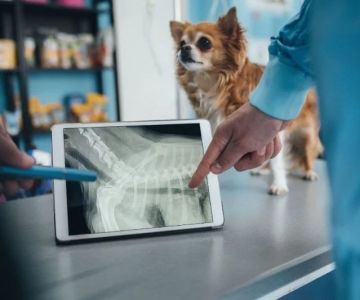
- 1. Introduction: The Importance of Water for Pets
- 2. Understanding Dehydration in Pets
- 3. Risks of Not Drinking Water for Pets
- 4. How Long Can Pets Survive Without Water?
- 5. How to Prevent Dehydration in Pets
1. Introduction: The Importance of Water for Pets
Water is essential for all living creatures, and pets are no exception. While we often focus on feeding our pets, it's equally important to ensure they stay hydrated. Whether you have a dog, cat, or another type of pet, keeping them properly hydrated is crucial for their overall health and well-being. But how long can pets actually go without water, and what happens if they don’t drink enough? This article will discuss the risks of dehydration in pets and provide guidelines on how to ensure your furry friends stay hydrated and healthy.

Dr. Prather’s Farm Animal Veterinary Services
4787 Houston Rd, Florence, KY 41042, USA
2. Understanding Dehydration in Pets
Dehydration occurs when a pet loses more fluids than they are taking in. It can happen for a variety of reasons, including excessive heat, illness, or simply not drinking enough water. Pets can become dehydrated quickly, especially in hot weather or during strenuous activity. When a pet is dehydrated, it can lead to serious health complications, and in extreme cases, it can be life-threatening.

Vetco Vaccination Clinic
ColumbusBartholomew CountyIndiana
1337 N National Rd, Columbus, IN 47201, USA
Signs of Dehydration in Pets
It's important to know the signs of dehydration in pets, so you can take action before the situation becomes serious. Common signs include:
- Dry or sticky gums
- Sunken eyes
- Loss of skin elasticity (if you gently pinch their skin, it may take longer to return to normal)
- Excessive panting or lethargy
- Reduced appetite
- Dark yellow urine or no urine at all
3. Risks of Not Drinking Water for Pets
If a pet doesn’t drink water for an extended period, the risk of dehydration increases. Dehydration can cause a range of health issues, such as:
1. Kidney Damage
The kidneys rely on water to filter waste and maintain proper function. Without adequate hydration, kidney damage or even kidney failure can occur, leading to long-term health problems.
2. Heatstroke
Pets, especially dogs, are prone to heatstroke if they don't have enough water to regulate their body temperature. This can be particularly dangerous during hot weather or after vigorous exercise.
3. Impaired Circulation
Water is essential for maintaining blood volume and circulation. When a pet is dehydrated, their blood becomes thicker, making it harder for their heart to pump blood efficiently. This can result in further complications, including organ failure.
4. Digestive Issues
Water helps in the proper functioning of a pet’s digestive system. Dehydration can lead to constipation, bloating, and other gastrointestinal issues that can make your pet feel uncomfortable.
4. How Long Can Pets Survive Without Water?
The length of time a pet can survive without water varies depending on factors like the pet's size, age, health status, and the environmental conditions they are in. However, pets can generally only survive for about 1-3 days without water. In extreme conditions, such as high heat or illness, dehydration can set in much more quickly, and the risks become much greater.
Factors That Affect How Long Pets Can Go Without Water
Several factors influence how long a pet can go without water:
- Size: Larger pets may be able to survive slightly longer without water, but they are still at risk of dehydration.
- Age: Puppies and kittens, as well as senior pets, are more vulnerable to dehydration due to their smaller bodies or weakened immune systems.
- Health Conditions: Pets with pre-existing health issues, such as kidney disease or diabetes, are at greater risk of complications from dehydration.
- Environmental Conditions: Hot, humid weather or a lack of air conditioning can cause pets to become dehydrated more quickly.
5. How to Prevent Dehydration in Pets
Preventing dehydration is crucial for your pet's health. Here are some tips to help keep your pet hydrated:
1. Always Provide Fresh Water
Make sure your pet always has access to clean, fresh water. Change the water daily, and ensure it’s placed in a convenient spot where your pet can easily reach it.
2. Offer Wet Food
If your pet is not drinking enough water, consider adding wet food to their diet. Wet food contains moisture that can help keep them hydrated. This is especially helpful for cats, who are less likely to drink water on their own.
3. Monitor Their Activity
In hot weather, avoid vigorous exercise, and make sure your pet takes frequent breaks to cool down and drink water. Always provide water during walks or outdoor play.
4. Hydration Products
There are hydration products available, such as flavored water or hydration tablets, that can make drinking more enticing for your pet. These can be especially useful for pets that are reluctant to drink plain water.
5. Regular Vet Visits
Regular veterinary check-ups are essential to ensure your pet is healthy and properly hydrated. If your pet is prone to dehydration or has underlying health conditions, your vet can provide tailored advice to help you manage their hydration needs.
In conclusion, hydration is essential for your pet's health, and ensuring they always have access to fresh water can prevent many serious health issues. If you're unsure about your pet’s hydration needs or notice signs of dehydration, consult your vet immediately to ensure your furry friend stays happy and healthy.
For more tips and pet care resources, visit Pet & Puppy to find the best products and services for your pet's needs.







 Grassman Reef LLC5.0 (10 reviews)
Grassman Reef LLC5.0 (10 reviews) PetVet Vaccination Clinic0.0 (0 reviews)
PetVet Vaccination Clinic0.0 (0 reviews) Greenfield Veterinary Clinic4.0 (155 reviews)
Greenfield Veterinary Clinic4.0 (155 reviews) Furry Friends Veterinary Hospital4.0 (269 reviews)
Furry Friends Veterinary Hospital4.0 (269 reviews) Paw Partners Veterinary Clinic0.0 (0 reviews)
Paw Partners Veterinary Clinic0.0 (0 reviews) Herd Health Management4.0 (56 reviews)
Herd Health Management4.0 (56 reviews) How to Calm a Nervous Pet During a Thunderstorm or Fireworks – Expert Tips
How to Calm a Nervous Pet During a Thunderstorm or Fireworks – Expert Tips How to Celebrate Pet Holidays: Fun Ideas & Safety Tips
How to Celebrate Pet Holidays: Fun Ideas & Safety Tips DIY Frozen Treats for Pets: Recipes & Safety Tips
DIY Frozen Treats for Pets: Recipes & Safety Tips Cat Hairballs: How to Prevent and Manage Them Effectively
Cat Hairballs: How to Prevent and Manage Them Effectively How to Discourage Counter-Surfing in Dogs: Tips and Techniques
How to Discourage Counter-Surfing in Dogs: Tips and Techniques The Role of Probiotics in Pet Health: Should You Supplement?
The Role of Probiotics in Pet Health: Should You Supplement?